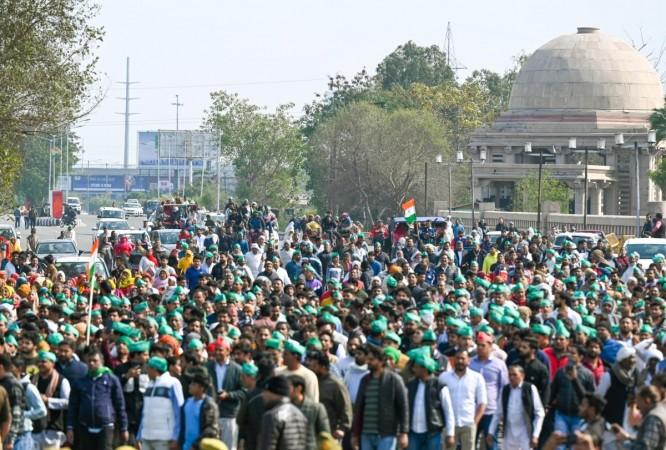
Social media is, perhaps, one of the most complicated facets of current times; relatively new, unquestionably powerful and the strongest shade of gray. However, governments and authorities trying to monitor cybercrimes and extensive misuse of the platforms is one thing, but trying to crush dissent is quite another. In a move likely to cause uproar and become a subject of divisive opinions, the cyber crime unit has set up a social media monitoring center in Gurgaon in a bid to track posts on online platforms.
The center is being specifically set up to track posts that could spread discord in society and is being scheduled over the farmers' protests in the Capital region. Sidhant Jain, deputy commissioner of police (South and Cyber) said that the centre will monitor all the content posted online on all the platforms.
"Many posts are being shared on social media regarding the farmers' protest, so there is a need to monitor them. Everyone has the right to freedom of speech, but there are untoward elements that could peddle fake news and spread discord in society, or incite people. Emotionally driven people could fall for posts by rumour mongers. The special media monitoring cell will timely identify and flag such content on the social media, and remove them from the online platforms," the Indian Express quoted him as saying.
A firm eye on farmers' protest
With thousands of farmers on the streets of the capital to make themselves heard, reportedly the posts will especially focus on accounts coming from the epicenter of the farming communities in Haryana, Punjab, northern Rajasthan, western Uttar Pradesh, Delhi and the neighboring region.

Adds DCP Jain, "We will also duly analyze other posts with certain keywords. So far, we have sent 35 notices under Section 69 of the IT Act to social media platforms regarding posts that are likely to spread communal disharmony as well as rumours which could disrupt the law and order situation."
The ifs & buts in the situation
However, like with most well-meaning laws and law-enforcing agencies, netizens fear the misuse and abuse of the situation. Internet bans and what constitutes, "posts that spread discord and harmony" remain an undefined area. The monitoring cell has a staff of 8-10 individuals and state-of-the-art technology, according to the IE report. The posts will be monitored on the basis of content, hashtags, scrolling, and algorithm based searches for any inflammatory content. Reportedly, those posting will be tracked on the basis of their IP address and legally pursued against the local police.
Not the first attempt at social media monitoring
A powerful tool at the hands of the victims, dissenters, to battle misinformation and highlight the misgovernment and corruption; social media is also the weapon with which regimes and anti-social elements can crush protests, spread false narratives, and further fake propaganda. This is not the first time that such an attempt has been made by the administration.
Last year, the Haryana government constituted a four-member committee to monitor social media posts that could incite social tensions and communal violence. The move was close on the heels of the Supreme Court asking governments to ensure that no hate speech was allowed in gatherings across NCR.

















